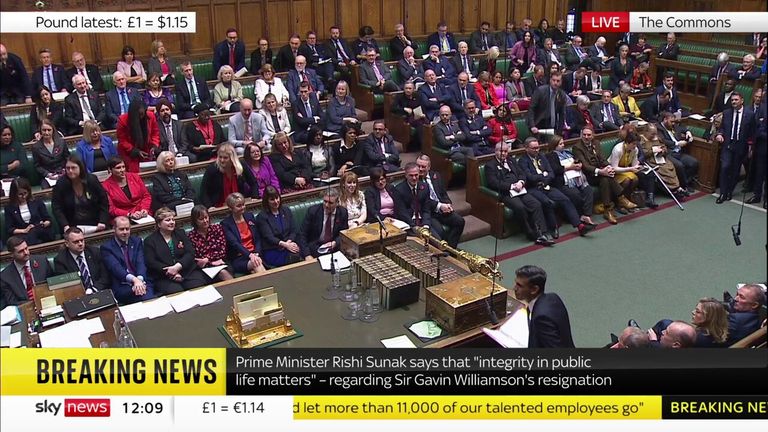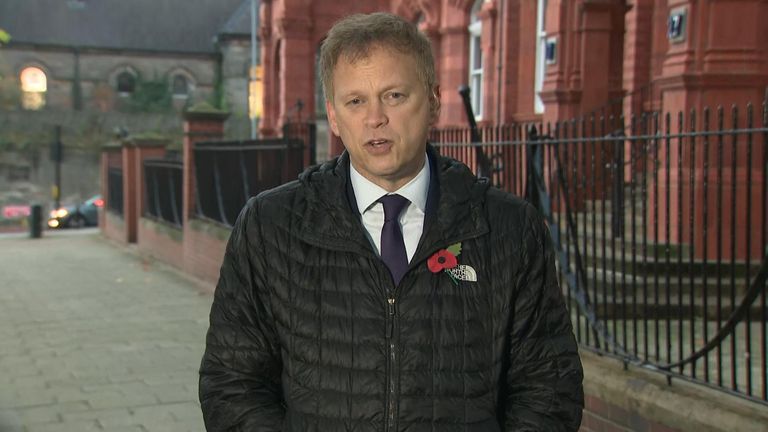Hunt risks further energy bill damage if windfall tax proves punitive
As Jeremy Hunt, the chancellor, prepares to dip into the pockets of millions of taxpayers and businesses, it feels almost inevitable that the money-grabbing wheezes will include an extension of the windfall tax on oil and gas companies.
The prime minister Rishi Sunak, when chancellor, slapped a 25% ‘temporary Energy Profits Levy‘ on oil and gas producers at the end of May to help support households and businesses with their energy bills.
The scope of that tax, which took the overall tax rate levelled on North Sea oil and gas producers to 65%, may well now be extended to power generating companies although no details have yet been published.
But Mr Hunt faces a tricky balancing act.
For many of the companies that would be dragged into Mr Hunt’s dragnet under such circumstances are playing a huge role in the transformation to net zero.
Every pound handed to the Treasury by such businesses is a pound less that can be invested on new renewable generating capacity – capacity that, had it already been installed, would have insulated the UK from the ravages of higher fuel bills caused by Vladimir Putin’s war on Ukraine.
It is a point that many electricity generators have been at pains to stress during recent days.
Among them is Keith Anderson, the chief executive of Scottish Power, which closed the last of its coal-fired power stations as long ago as 2016 and which now generates 100% of its electricity from renewable sources (although it still sells electricity to some consumers from gas-fired power stations owned by others).
Mr Anderson told The Times this week that the company – owned by Spanish energy giant Iberdrola – was “absolutely not” making windfall profits because it had pre-sold its power output up to two years ago at prices far lower than today’s wholesale prices.
He told the newspaper: “I don’t think there will be any justification at all to put any kind of additional tax on a renewables business like ours right now.”
Mr Anderson said that owners of gas-fired power stations, nuclear reactors and pumped hydroelectric plants were the chief beneficiaries of surging wholesale energy prices because they were more exposed to shorter term prices.
That would hit the likes of French-owned EDF Energy and Centrica, the owner of British Gas, which together own the UK’s remaining nuclear power plants.
It would also hurt German-owned RWE, former owner of the household energy supplier Npower, which owns Pembroke B – Europe’s biggest gas-fired power station – and several other major plants including Staythorpe C in Lincolnshire and Didcot B in Oxfordshire.
Its peer Uniper, which also owns several gas-fired power plants, might also be affected.
And another major potential casualty would be SSE, one of the UK’s biggest renewable electricity generators, which is currently building more offshore wind capacity than any other company in the world.
On Wednesday it reported adjusted pre-tax profits of £559.4m for the six months to the end of September, up from £174.2m in the same period last year, most of which was driven by a big increase in earnings in its gas-fired operations – the company will shortly open what is expected to be the UK’s last major gas-fired power station – and its gas storage operations.
Speaking to Sky News this morning, Alistair Phillips-Davies, the SSE chief executive, said: “I think windfall taxes, if they come, if they’re fair and reasonable, then that’s fine – we’ve always said we’d be prepared to pay our fair share.
“I think the critical thing for the UK is that having created this amazing environment for investing in, and being one of the best places in the world to have green and renewable investment, we need to maintain investor confidence and we need to be able to give rewards to those investors to make sure they keep coming and make those investments that will take us out of the energy crisis.”
Mr Phillips-Davies stressed that SSE had, during the first half of its financial year, invested almost four times as much as it had made in profits.
He said that would continue to be the case, noting that SSE would be investing £25bn between now and the end of the decade, far more than it would make in profits.
He added: “Lots of companies in the supply chain want to come and invest here and build far cheaper energy than we’re seeing now here in the markets – all that energy’s going to be flooding into the UK later on this decade as long as that investment keeps coming.
That’s what’s going to be the most important thing for consumers.
“We’ve calculated that, if we were in 2030 now, and we’d made all those investments that we’re intending making by 2030 across the country, and all the different companies, we’d have taken £30bn off the gas bill of consumers this year.”
Mr Phillips-Davies pointed out there were “an awful lot” of countries around the world that were also keen to attract investment into both onshore and offshore wind.
That may not be enough, though, to keep the chancellor at bay.
Some in the market, though, think the doom and gloom is being overdone.
They suspect that any extension of a windfall tax is likely to clobber the oil and gas producers more and that the share prices of SSE and its fellow generator Drax – which are respectively down 13% and 29% during the last six months – may be pricing in a more draconian outcome than actually transpires.
That is, indeed, if Mr Hunt chooses to do anything at all.
Taxes are levied for a number of reasons, the most obvious of which is to raise money for the government, but another is to make less attractive activities, like smoking, that the government wishes to see less of.
Since adding renewable generating capacity is something that ministers wish to see more of, presumably, it would be perverse to add to the tax burden of the companies doing it.
Moreover, Mr Hunt may not need to do anything, as Chris Sanger, head of tax policy at the accounting and business services giant EY, has pointed out.
Mr Sanger, a former advisor to Gordon Brown at both the Treasury and 10 Downing Street, said: “It’s worth remembering that the Energy Profits Levy was costed under the price assumptions prevalent at the time.
“If this policy was re-costed now, with the latest predictions on how long we can expect oil prices to remain high for, it’s likely that this alone would raise additional revenue, without the need to tinker with the policy itself.”
Only one thing can be said with certainty – and it is that windfall taxes always have consequences that, quite often, turn out to be the ones not desired by the ministers who impose them.
For all the latest business News Click Here



